|
This weekend is the feast of St. Patrick—one of the most popular saints in the Archdiocese of Washington where I grew up and arguably in the entire United States. But two days later on March 19, coming much more quietly and with far less fanfare in American culture, slips in the Solemnity of St. Joseph.
It is easy to lose the Solemnity of St. Joseph in the rigors of Lenten observances or because it comes on the heels of the day-long party that seems to happen every year on St. Patrick’s Day. Perhaps we often overlook this feast because we know so little about who St. Joseph was and what his life was like. Nevertheless, St. Joseph remains an incredibly important figure, especially for parents. Joseph is mentioned only a few times in the New Testament. We know from the Gospels that Joseph was a law-abiding and righteous man, and that he obeyed God’s will—especially when it was revealed to him directly by an angel. After these few mentions in the infancy narratives of Jesus, St. Joseph gently fades into the background and then disappears altogether from the Gospels. But the Church in her wisdom has made St. Joseph’s importance clear for those who are paying attention: he is mentioned in all four Eucharistic Prayers at Mass, as well as in the Divine Praises during Benediction at the end of Eucharistic adoration. But what makes St. Joseph so special? From what we can glean from the Gospels, St. Joseph was an ordinary man of deep faith who was called to become the foster-father of Christ. He became the earthly guardian of the Messiah, responsible for his upbringing and tasked with protecting him in his early life. St. Joseph’s commitment to his vocation as the husband of Mary and the foster father of Christ was so strong that upon being warned about the murderous intentions of King Herod, he fled immediately—in the middle of the night!—to Egypt. He did whatever it took, even leaving his entire life behind him, in order to keep his family safe. The little we see of him in the New Testament shows us a devout man who always trusted in God and took care of his family. St. Joseph, as the third member of the Holy Family, is the member who is the most like us—especially those of us who are parents. He was not born sinless, nor was he divine. He was a carpenter, a man of humble station who probably felt as though he had a monumentally important task thrust upon him. I think St. Joseph’s role in Christ’s life beautifully displays the role of a Christian parent in their child’s life. Parents are ordinary people who are tasked with the care and raising of new life. Like Joseph, we do not own our children or have sole claim over them; they are their own people, entrusted to our care and guidance until they grow old enough to do God’s will without our assistance. It is a difficult task, and at times overwhelming to ponder. And yet there is St. Joseph, who was tasked with raising the very Son of God. Joseph shows us that we do not need to be perfect in our roles, only willing to be guided by God as we place our trust in Him. Just as I strive to be like Mary in my vocation as a wife and mother, I pray that my husband will be like Joseph. St. Joseph is the ultimate husband and father, a faithful man of quiet strength, protector of Mary’s virginity, and guide of Christ’s earthly childhood. Above all, St. Joseph shows us the beauty of a life lived in obedience to God’s will. Questions for Reflection: How can you grow closer to St. Joseph throughout this Lenten season? What can you learn from St. Joseph’s example of obedience and trust?
0 Comments
No one ever told me that marriage prep would be easy, but as I soon discovered, it involves sacrifice, time management, communication, honesty, and humility. It demands both patience and inconvenience, and perhaps an uncomfortable truth or two. There's work to be done, yes, but this cannot compare to the countless joys and the excitement I share with my beloved. Preparation for marriage, however, does not conclude with the certificate of participation. The work continues and never stops! Our efforts may not be recorded by the diocese but are a natural part of this holy vocation. That afternoon, my fiancée and I were thankful for the work and sharing that was accomplished that day, but even more so for the time afterwards we had in order to further share, process, and discuss the details of our sacramental future together.
While this time of year may call to mind Valentine’s Day, the bishops of the United States have designated the observances of National Marriage Week (February 7-14) and World Marriage Day (Sunday, February 11) as “opportunities to focus on building a culture of life and love that begins with supporting and promoting marriage and the family.” The Church is invited to reflect on the role of marriage in the world and its influence on each of us, no matter our state in life. Of course, no two marriages are the same—a truth that reflects the beauty and depth of the sacrament and this mystery of love. Growing up, my parents were my first heroes. Their marriage was inspiring for a number of reasons, but I simply admired its endurance. Marriage, as they knew—and I am continuing to learn—is a lifelong commitment in the sight of God to offer the gift of self to one another in love and for the building of the domestic church, the family. Those called to marriage are entrusted with the awesome responsibility to answer God’s first command to humanity: be fruitful and multiply (Gaudium et spes 48). I was born out of my parent’s married love to bear witness to Love itself. Like my parents, my love is imperfect, yet I continue to offer it as they do: in order to sustain their marriage and continue to live out their vows to love each other in all circumstances of life. Seeing their efforts inspires and shapes my own for my future marriage. Thankfully, I can look not only to my parents’ example, but also to a number of saintly married couples whose lives of holiness are models for the rest of us. The heroic virtues that they exemplified through their marital love are a great source of encouragement and hope to those who face similar circumstances in their lives. My favorite is St. Gianna Molla and her husband, Pietro, who throughout their journey of love composed many beautiful letters to each other. In an increasingly secularized world where marriage is little more than cohabitation, holy couples such as the Mollas are refreshing witnesses to the sanctity of marriage and family life. They model for us the surrendering of all difficulties and hardships to God. Though marriage has its challenges and responsibilities, let us not be intimidated by the reality of this vocation! As in all the other sacraments, God’s grace flows throughout married life and sustains us through this calling. Yes, there are demands and difficulties, but these serve to purify our love in the example of Christ’s total and perfect love from the cross. As Pope Francis advised 10,000 engaged couples four years ago: We are all aware that the perfect family does not exist, nor does the perfect husband, nor the perfect wife. We exist, and we are sinners. Jesus, who knows us well, teaches us a secret: never let a day go by without asking forgiveness, or without restoring peace in your home. If we learn to apologize and forgive each other, the marriage will last. May the Holy Family pray for us as we continue to build the domestic church! For more resources on Marriage and Family, click here. Questions for Reflection: Can you think of examples in your own life of a married couple who lives out their vocation with joy? How has their witness impacted your understanding of marriage? When my husband and I were preparing for marriage, we spent time in reflection and prayer carefully choosing our Mass readings. It was such an exciting decision to make, and we prayed that the readings would reflect and inspire us in our marriage and all whom we would witness to by our marriage. Some of these same readings will be read at Masses across the world on the upcoming feast of the Holy Family, serving as a reminder of how we can live as reflections of the Holy Family in our daily lives. In the second reading, Paul tells the Colossians, “Put on, as God's chosen ones, holy and beloved, heartfelt compassion, kindness, humility, gentleness, and patience” (Col 3:12). Just like Mary, Joseph, and Jesus, we are God’s beloved, chosen and loved by God, and with that, we are called to live by these same virtues that Paul shares with the Colossians. The stories of Mary and Joseph consistently show us their lives of humility and gentleness. I think of Mary’s fiat (Luke 1:38), Joseph’s obedience to the angel of the Lord (Matthew 1:24), or how Mary and Joseph took Jesus to be presented in the temple in this weekend’s Gospel (Luke 2:22-40). Just like Mary and Joseph, we are called to serve and love God with faithfulness that is radical, but gentle and sweet. What does this faithfulness look like? For the Holy Family, not only did it manifest in the stories we read about in Scripture, but also in the mundane moments of the every day. Mary nursed Jesus as an infant, Joseph taught him carpentry, and Jesus served his parents and brought them joy! Jesus carried this love in his ministry that nurtured all to whom he preached, and it continues to carry on in the legacy of the Church. These little acts of faithfulness yielded enormous fruits and carried the Holy Family through times of immense suffering. As I feel overwhelmed with my day to day duties of family life as a wife and mother, or my job as a teacher, I find comfort in knowing that perhaps Mary and Joseph felt these demands, too. They were faithful to their vocations, to each other, and to the Lord. Life is a balancing act, but with “Christ dwell[ing] in you richly,” like the Holy Family, all can be done in love, “do[ing] everything in the name of the Lord Jesus” (Col 3:17). You show faithfulness when you do the dishes, when you submit an assignment for work or school, when you make the bed. You show faithfulness when you play with your children, when you have coffee with a friend, when you stop and pray. You show faithfulness when you show up to Mass. Opportunities for faithfulness, humility, and gentleness are in the every day, both big and small. Through these opportunities for faithfulness I have learned that God is never outdone in generosity. He wants to bless us and let us know His love, and He does this in the most profound way when we show Him our faithfulness and love, just as the Holy Family has modeled for us. As we continue to navigate the demands of our daily lives, let us cling to the intercession of the Holy Family, that we may be gentle and humble, showing radical faithfulness in all that we do. Question for Reflection: What are some opportunities to show for faithfulness in your life? For more resources on Marriage and Family, click here. Alyce Shields is a teacher in Washington D.C.
This year’s Advent was special for me; I have so much to be thankful for. My husband and I celebrated our first Advent season together, and are experiencing both the chaos and joy of the Christmas season. Joy for us is found in the little moments and in reflecting on the birth of Jesus. Something we found particularly joyful during the Advent season was sitting and writing out Christmas cards. Thinking about each of the people we were writing to and sharing our love with them reminded us of the love we give by spreading the Good News. The Christmas miracles of joy and giving are alive in those cards; and we hope they inspired our relatives and friends. For my husband, opening cards is a moment of celebration because he loves getting mail. That is the joy that we wanted others to experience this Christmas.
As we reflect on this Christmas season, we can recognize the things that foster joy in our hearts. I’ve taken time to consider my own generosity and think of those in need. In the Prayer of St. Francis we hear a reminder of how to live with our hearts open. One of my favorite lines from that prayer reminds us that “it is in giving that we receive.” Those are such poignant words. The Christmas season especially reminds us to give of ourselves. We look to the generosity of God Himself, who became man in order to give us the gift of salvation. When the world is in disarray, let us look to Christ who came to us in absolute humility on Christmas morning. I imagine the hustle and bustle in Bethlehem as Mary and Joseph went through the hordes of people for the census only to find no room for them. They ultimately found a quiet and humble spot for the most important birth in the world; Jesus brought joy to the chaos. In our lives, He brings joy, too. In the chaos of the holidays, in the midst of our planning and scheduling, travel and seeing relatives, we find that same child. The center of our lives is Christ Himself, welcoming us to quiet peace and joy. As we continue to celebrate this Christmas season, turn to the quiet and find Him for yourself. You will find joy there. Turn to the person in need—you will find joy there. Open your hearts to love and giving and you will find joy in the chaos. Merry Christmas! Question for Reflection: How can you carve out time each day to "turn to the quiet" and spend time with Christ? For more resources on Advent and Christmas, please click here. A man named John was sent from God. He came for testimony, to testify to the light, so that all might believe through him. (John 1:6-8)
The first word that comes to mind upon reading this Gospel is humility. In response to questions from the priests and Levites, John explains that he baptizes not as Christ, Elijah, or the Prophet, but as “the voice of one crying out in the desert, ‘make straight the way of the Lord’.” John is so quick to point out this distinction, so quick to give credit where he feels credit is due. Reflecting back to my years of service as a Lasallian Volunteer and Good Shepherd Volunteer, I think I could have used a slice of this humble pie. How often did I consider myself “the light,” taking on the responsibility to serve, or save, the communities I entered? How often did I fail to see the parts of myself that needed saving, and that this saving work was never really mine to begin with? Thanks to time, perspective, and most of all, the grace of God and those I have encountered, I continue to be humbled - moved beyond my self-righteousness, and into a space of more authentic listening, learning, and loving. These moments, in all their discomfort and vulnerability, become my testimony; through the gift of growth, I can “testify to the light.” Focus on: COMMUNITY In this Gospel, the questions posed by John’s community invite him to name who he is and what he is about. Community often provides this challenge and gift - holding a mirror up to our past, present, and future and reflecting how all these complexities meld and meet the world. How do your communities help you own your truth? In community, how can we help each other “testify to the light” within? SERVICE SUGGESTION: Spend some time reflecting upon someone in your community who has helped you grow more into who you aspire to be. Write a note of appreciation, take them out to coffee, or find some unique way to affirm them and acknowledge the influence they have had. PRAYER: Our Power to Bless One Another by John O'Donohue (Excerpt from To Bless the Space Between Us) In the parched deserts of post-modernity a blessing can be like the discovery of a fresh well. It would be lovely if we could rediscover our power to bless one another. I believe each of us can bless. When a blessing is invoked, it changes the atmosphere. Some of the plenitude flows into our hearts from the invisible neighborhood of loving kindness. In the light and reverence of blessing, a person or situation becomes illuminated in a completely new way. In a dead wall a new window opens, in dense darkness a path starts to glimmer, and into a broken heart healing falls like morning dew. It is ironic that so often we continue to live like paupers though our inheritance of spirit is so vast. The quiet eternal that dwells in our souls is silent and subtle; in the activity of blessing it emerges to embrace and nurture us. Let us begin to learn how to bless one another. Whenever you give a blessing, a blessing returns to enfold you. *This post was published in the 2017 Advent Reflection Guide, a collaborative effort between the Catholic Volunteer Network and the Catholic Apostolate Center. Click here to view the full guide. Katie Delaney is a former Lasallian Volunteer and former Good Shepherd Volunteer. To learn more about faith-based service opportunities through the Catholic Volunteer Network, please click here. “I have no gift to bring…that’s fit to give the king.” -The Little Drummer Boy What do I have to give to the Lord this Christmas? It’s a question I find myself asking as we hum along the Advent season. Amidst the beautiful lights, the Advent wreaths, the Christmas trees, and the dark nights, I turn to different types of Christmas music to help me prepare for the coming of Jesus. I love the enchanting songs and hymns written specifically to prepare us for this season. I love songs like “O Come, O Come Emmanuel,” “What Child is This?” and “O Holy Night.” But lately, as I’ve been reflecting on what I have to give the Lord this Christmas, I think of another of my favorite songs: The Little Drummer Boy. It’s a simple song. A little drummer boy is invited to meet the Newborn King and offers to play for him. It’s a touching story that has become almost like a Lectio Divina meditation of the birth of Christ for me throughout the years. This song places me easily within the scene: a cold, dark night, the smell of strewn hay, the breath of cattle, a humble couple, a group of shepherds, and then, a manger holding Christ Himself: the Creator, the Savior of the World, the King of Kings. In my meditation, I take the place of the little drummer boy. He, like Jesus, is poor and humble. Upon seeing the gifts of the magi and the recipient of the gifts, he reflects, “I have no gift to bring…that’s fit to give the king.” He has no frankincense or myrrh, no gold or silver. He has only himself and his drum. Most of us are like the little drummer boy. The question he asks is the question that resounds in each of our hearts. What could we possibly give to the God of everything? What gift could we bring that’s fit to give the King? The drum of the little drummer boy symbolizes his gifts and talents. It is perhaps his singular greatest treasure. And so, in his humility, with love and tenderness, he offers the Christ Child all he has: a song on his drum. The song almost prefigures the coins of the widow in the Gospel of Mark. The little drummer boy, like the widow, gives his greatest treasure. In response to the widow’s offering, Christ says, “I tell you truly, this poor widow put in more than all the rest.” Christ’s smile in the song of the Little Drummer Boy seems to signify the same. These are the greatest gifts the Lord asks of us: what we hold most dear, the beautiful gifts and talents he has bestowed on us, what makes us ourselves. We love him best, we glorify him best, when we give of ourselves and strive each day to become the man or woman he has created us to be. What can we give the Newborn King this Christmas? Our hard work, our sleepless nights, our chores around the house, the virtues we’re working to perfect, our acts of faith, hope, and love. We can give him our time in prayer, our offerings at Mass, our acts of service to those around us, our talents in art, business, and sports. The little drummer boy’s reward for his performance is the smile of Jesus. What a touching, beautiful reward! It has led me to wonder what I can do for God each day to make Him smile. Imagine if this were what motivated each member of the Body of Christ – what a vibrant Church of missionary disciples we would have! May this be our goal during the Advent season: to make the Christ Child smile in the giving of ourselves. As we continue to prepare for the coming of Jesus on Christmas, I invite you to reflect on what you have to give the Newborn King. What is your drum? What can you do throughout this season to honor Christ? What are a few ways you can make the child Jesus smile? For more resources to guide you through the Advent season, click here. Preparing for Hurricane Irma has given me a fresh perspective on what matters most. With each alert, evacuation notice, and email telling me that work would be canceled for “x” amount of days, my panic level rose. The uncertainty of the storm’s path falling on my city and then my family’s city kept us all in constant contact reviewing our emergency plans. Social media messages from friend to friend with notes of encouragement and “hurricane hacks” brought us all closer together around the state. Thankfully, I am located in north central Florida, where Hurricane Irma caused less damage than its two landfalls near Naples and The Keys. Prepping my house and selecting the most important items to protect for survival is very humbling. While packing, I thought of my fellow Floridians who evacuated south Florida not knowing if they will have a home to come back to. I thought of those in the Caribbean who received the brunt of Hurricane Irma’s force. I thought of the victims in Texas who battled Hurricane Harvey and continue to cope with its aftermath. These natural disasters remind us of the sanctity of life, what is most important. With the hurricane covering the entire state of Florida, I thought of how small I am—especially in comparison to what God can accomplish. During times of natural disasters, reliance and trust in him increases. One of my neighbors reminded me of the story in Matthew 8:23-27, when Jesus calmed the storm at sea. Jesus told his disciples, “‘Why are you terrified, O you of little faith?’ Then he got up, rebuked the winds and the sea, and there was great calm.” My neighbor told me, “He did it once, and he can do it again!” Her faith was inspiring to me and instantly calmed my nerves. When someone asks, “Where is God in this storm? Why did he create this?” my answer is that God is in those who help others and respond with service and compassion during times of trial and suffering. 1 Corinthians 12 tells us that we are Christ’s body and form individual parts of it. We are the hands and feet of Christ in the world. We may not see the ways God is helping at first because these ways may not necessarily be our ways. I truly believe acts of kindness, such as neighbors checking in on one another and helping one another prepare their homes and families, provide hope during times of fear or suffering. The selfless love of fellow citizens encourages each of us to do what we can for others, in this case, those affected by these recent storms. There are students, faculty, and staff from the University of Florida, where I work, who are ready to jump into action after the storm passes to help others by donating food and clothing, assisting displaced pets, and more. We grieve with those who hurt and find ways to help alleviate their suffering. Rather than filling my thoughts with why this storm has happened, I instead thank God for the blessings he has provided my family and me. Ultimately, God does not cause the storm (or evil), he simply permits the natural way of the world, just as he does with the free will of human beings. Romans 8:28 tells us that God is always working for our good or working to bring about good and turn even a bad situation into a blessing. I am comforted by this thought. During this time of hardship for many in our country, I pray that we may come together and serve one another in order to bring good out of suffering. May we continue to be the hands and feet of Christ to our brothers and sisters. Smart and good looking, “Norbert’s eyes and ears were open only for things of the world,” as one biographer put it. That ended one summer day when a sudden storm dropped a lightning bolt at the feet of the horse Norbert was riding. The lightning scorched the grass and spooked his horse, throwing the young German nobleman to the ground. Waking up an hour later, Norbert felt the emptiness of his life flash before his eyes. Norbert said, “Lord, what would you have me do?” The answer he heard was, “Turn from evil and do good; seek after peace, and pursue it (Ps 34:14).” Norbert traded his velvet overcoat for a hair shirt—and a saint was in the making. Norbert went on to become Archbishop of Magdeburg (Germany) and founder of the Order of Praemonstratensians (named for Prémontré, France)—also called Norbertines. Norbert is known as the Apostle of the Blessed Sacrament and is often portrayed holding a ciborium. This portrayal is fitting because Norbert spent his life promoting devotion to the Real Presence of Jesus in the Eucharist during an age in which this truth was challenged. It’s also fitting because Norbert became what all Christians are called to be—a living ciborium in whom Jesus has increased while we have decreased (cf John 3:30). As we anticipate next week’s Feast of Corpus Christi, we look to Norbert as an example of what a Eucharistic life looks like. Norbert modeled the Eucharistic Jesus in four powerful ways. The Eucharistic Jesus is Hidden Jesus hides himself as a little piece of bread in the Eucharist. Following a vision of the Blessed Virgin, Norbert built his first monastery in what one historian called “the desert of Prémontré,” north of Paris. Everyone thought he was foolish to found the Order in such a remote, hidden, and barren place, but he trusted that it would, in God’s time, bear abundant fruit for the Kingdom. The Eucharistic Jesus is Humble After his election as Archbishop, Norbert made his way in penitential attire to the Episcopal Palace, where the porter rudely shut the door in his face, thinking he was a tramp. When the porter realized his mistake, Norbert only smiled and said, “Fear not, my good man, for you know me better than all those who have raised me to this high dignity.” The Eucharistic Jesus is Vulnerable to Misunderstanding Norbert was fearless in speaking truth in an era of laxity. Shortly after his conversion, he told his confreres in the monastery in what ways they were not living up to the holiness of their calling. He converted some and, not surprisingly, was attacked by many. When he was Archbishop, a resentful mob even threatened to kill him. “Calumny,” Norbert told his followers, “is the test of a patient and generous heart, which bears with it rather than to give up working for God.” The Eucharistic Jesus Gives Himself to be Consumed by Those He Loves Norbert’s perseverance in self-giving is legendary. He walked barefoot in the winter from Germany to France (where he received a mission to preach from Pope Gelasius himself), never taking food until evening except on Sundays and never going anywhere except to preach conversion of heart and reform of morals. At the end of his life, he was in extreme pain and emaciated from fasting and fever, having spent himself for the glory of God and the good of souls. Still, he roused himself to celebrate Easter Mass, the last of his life. Eucharist means “thanksgiving.” St. Norbert’s life was a thanksgiving for God’s stunning mercy in having saved him from the hell-bound path of his youth. He reminds us to remain grateful for God’s mercy so we become ever more inspired to pour ourselves out in imitation of the Eucharistic Jesus. St. Norbert, pray for us! Leadership is essential for a healthy and holy Church. From St. Peter to Pope Francis where would our Church stand today without the great and gifted leaders through the centuries? Leadership in the Church, including local parishes, is not immune from the kinds of temptations leaders face in any institution. Based on my experience, I’d like to consider three temptations many leaders face framed by J.R.R. Tolkien’s classic Lord of the Rings series. It is my hope that understanding and being aware of these temptations will lead to a stronger, more unified Church grounded in the love of Christ. The Pursuit of Power “The road must be trod, but it will be very hard. And neither strength nor wisdom will carry us far upon it. This quest may be attempted by the weak with as much hope as the strong. Yet it is oft the course of deeds that move the wheels of the world: Small hands do them because they must, while the eyes of the great are elsewhere.” (The Fellowship of the Ring) Tolkien’s story relies on some rather homely and “weak” characters—hobbits—to carry out a great task: destroying the magic ring to save Middle Earth. We normally identify leaders by their exceptional strengths and talents. We use popular tools like strength and personality finder tests to help us identify our unique gifts. Using our gifts and talents to build up the Body of Christ is prudent and life-giving, but we should not too quickly assume God only wants to use our human strengths to bless or lead his Church. In fact, God often builds up the Church by using our weaknesses. He entrusted the building of His Church, afterall, not to the rabbis and scholars of his time, but to simple men, fishermen. As St. Paul frequently preached, cross-shaped leaders learn to live first out of their weakness and dependency on the power of the crucified Lord: “Consider your own calling, brothers. Not many of you were wise by human standards, not many were powerful, Rather, God chose the foolish of the world to shame the wise, and God chose the weak of the world to shame the strong… I came to you in weakness… so that your faith might rest not on human wisdom but on the power of God.” (1 Cor 1:26-27; 2:3,5). Knowing our weaknesses helps us as leaders to not fall into the temptation of the pursuit of power. Christ is glorified in our human weakness and can transform it for the building up of His kingdom. The Allure of Ambition “You are so wise and powerful, will you not take the ring?” “No!” cried Gandalf, springing to his feet. “With that power I should have power too great and too terrible.” (The Fellowship of the Ring) The allure of the ring is the promise of control, but the great wizard Gandalf understands the power of the ring inevitably ends up controlling the wearer. True leaders develop habits of cooperation and collaboration in ministry and are quick to deflect praise and thanks onto others. Because leaders are in a position to influence outcomes and events, however, some can be tempted to an unhealthy ambition. Sometimes, it can be tempting to view parish ministry as a stepping-stone to a bigger, better career in the church or name recognition. Unhealthy ambition can also feed a spirit of competition and criticism between churches that undermines our call to communion. One of my go-to prayers to combat this attitude is called the Litany of Humility. It is a good practice to periodically check our focus and drive. Does our work stem from a love of Christ and His Church? Are we seeking God’s greater glory or our own? Masking Immaturity “All that is gold does not glitter, Not all those who wander are lost; The old that is strong does not wither, Deep roots are not reached by the frost.” (The Fellowship of the Ring) I had a friend who out of college was given the responsibility of the youth ministry program at his home church. Unfortunately, early on he made a financial mistake that ruined a popular trip and drew harsh criticism from parents and staff alike. Unable to cope with such treatment, he resigned from ministry shortly after. Rather than seeing failure or mistakes as reasons to give up, these can be seen as important opportunities for growth and maturation. A young church is surely a sign of a healthy and growing church, but that doesn’t make it a mature church. While the freedom to take risks and make mistakes is an indispensable part of learning, leaders should surround themselves with team members who are varied and diverse in their ministry experience. For those who are relatively new to working for the Church, I suggest finding a faithful mentor or spiritual director with whom you can share struggles and receive encouragement. As Tolkien notes above, the Church needs wise, mature men and women to walk alongside its young, teaching patience and perseverance in order to grow deep roots. Thanks to many gifted and faithful leaders, our Catholic Church indeed has deep, strong roots. By knowing and understanding a few temptations leaders can face, we can help our Church become more faithful and stronger. Pray for our church leaders, that God may give them the grace to be wise, humble, gracious, and joyful examples of the call to be more obedient followers of Jesus. “The first end I propose in our daily work is to do the will of God; secondly, to do it in the manner he wills it; and thirdly to do it because it is his will.” – St. Elizabeth Ann Seton St. Elizabeth Ann Seton (1774-1821), whom we celebrate on January 4, holds the distinction of being the first native-born American saint. Looking back over her great achievements (which include planting the seeds of Catholic education in America and founding a religious order, the Daughters of Charity), what is so special and relevant about Mother Seton is how ordinary her holiness was. From Wall Street to Italy, from Baltimore to rural Emmitsburg, MD, Elizabeth initially lead a privileged life, but always remained humble and grounded. After becoming a widow with five children at only 28 years old, she eventually moved her young family to Emmitsburg and founded a religious order and Catholic school. After the death of her husband, her life was difficult, filled with personal trials and hardships. Yet, through all of it, she demonstrated constant dedication to discerning and pursuing the will of God, or, as she simply called it, “The Will.” In fact, it is through looking at how Elizabeth sought God’s will in the toughest moments of life that we stand to learn the most from her remarkable, yet ordinary life. Embracing Change “God, forgive what I have been, correct what I am, and direct what I shall be.” Humans are creatures of habit, which makes change a scary thing. God certainly called St. Elizabeth to change directions many times over the course of her life, even change her vocation! Elizabeth remained faithful and constant in the moment, while exercising abandonment to the will of God to respond freely as her circumstances changed. Elizabeth demonstrates how we do not become saints overnight, but grow through a day-by-day process of seeking forgiveness and correction every step of the way. Faithfulness in Failure “We know certainly that our God calls us to a holy life. We know that he gives us every grace, every abundant grace; and though we are so weak of ourselves, this grace is able to carry us through every obstacle and difficulty.” Growing up in a prosperous family, Elizabeth enjoyed a happy and fruitful marriage, blessing her with five children. Together with her husband William, to whom she was very much in love, they inherited a successful business on Wall Street. But in a short period of time, all that changed. William’s business failed and went bankrupt. Elizabeth knew success very early on, but learned firsthand the difference between success and faithfulness. As an American saint, Elizabeth powerfully challenges the American tendency to view outward success as an indisputable sign of God’s grace. The experience awakened in Elizabeth a newfound love of the poor, as well as a deeper understanding of the will of God in the midst of many obstacles and difficulties on the path to a holy life. Trust During Tragedy “The accidents of life separate us from our dearest friends, but let us not despair. God is like a looking glass in which souls see each other. The more we are united to Him by love, the nearer we are to those who belong to Him.” Not long after her family went bankrupt, Elizabeth and her husband William moved to Italy, where he became sick and died of Tuberculosis. Elizabeth had already lost her mother and sister early in life. Following her husband’s death, Elizabeth found consolation and hope in visiting and praying in various churches throughout Italy, and felt especially drawn to the Eucharist and the Blessed Virgin Mary even though she was still Episcopalian. Her experience planted seeds for her entrance into the Catholic Church. Many of us, myself included, have experienced tragedy strike at the heart of a family. Elizabeth demonstrates that tragedy, though profoundly shaking, need not lead to despair, but an invitation to rely even more on the will of God. Rejoice Despite Rejection “Afflictions are the steps to heaven.” When news of Elizabeth’s conversion in 1805 became public, many parents removed their children from the school where Elizabeth taught in Baltimore (after returning from Italy) and other friends no longer associated with her. Used to being a well-liked socialite, this experience must have been painful. Despite feelings of rejection, Elizabeth did not become bitter, defensive, or lose her natural joy and generosity. Instead, Elizabeth teaches us that following the will of God opens us to greater love and acceptance of others, not enmity with them. The tragedies and setbacks in Elizabeth’s life were not enough to keep her from trusting the will of God. In her own words, “God has given me a great deal to do, and I have always and hope always to prefer his will to every wish of my own.” Let us approach this new year as St. Elizabeth Ann Seton would have, eager to both desire and do the will of God. Consider starting off 2017 with this novena to St. Elizabeth Ann Seton starting tomorrow, January 4th. Pray in a special way to desire, know, and follow the will of God as St. Elizabeth Ann Seton did. St. Elizabeth Ann Seton, pray for us! “St. Michael the Archangel, defend us in battle . . .” I can distinctly remember hearing these words for the first time when I was at daily Mass several years ago. My first thought was, “That’s a little intense for a Tuesday!” quickly followed by, “I wonder what prayer that is?” Little did I know that years down the line that startlingly intense prayer would become my go-to in times of trouble. Today the Church celebrates the Feast of the Archangels – Gabriel, Raphael, and Michael. Although they all have different roles to play in the course of salvation history, all three serve as constant reminders of God’s providence and majesty. St. Michael, in a particular way, is our “heavenly help” in this world that is so riddled with pain and evil. When invoked, St. Michael not only protects us from our daily struggles with sin and evil, but by the power of God, he also allows us to more effectively share the Gospel of life. When invoked, he strengthens our ability and freedom to conquer sin and temptation, enabling us to more effectively share the good news of Christ. In this prayer – and St. Michael’s intercession – I have found great comfort in my daily life. I pray it after Mass when I know a loved one is fighting a particularly difficult battle, and most especially when I’m frightened. When consecrating the Vatican to St. Michael the Archangel in 2013, Pope Francis said, “St. Michael wins because in him, there is the God who acts . . . Though the devil always tries to disfigure the face of the Archangel and that of humanity, God is stronger, it is His victory and His salvation that is offered to all men. We are not alone on the journey or in the trials of life. ” One only has to turn on the news for 30 seconds to see that our brothers and sisters, both domestically and across the globe, are hurting – hurting for authentic love, for peace, and for a purpose greater than the world offers. And not only is the world hurting and disfigured, we are in a battle – a battle between good and evil, authentic truth and moral relativism, selflessness and selfishness. Although the battle is difficult, the reality for Christians is that we know the war has already been won. We have victory in Christ – victory in His cross, victory in His triumph over death, and victory in the promise of eternal life. This victory is ours not only to claim, but also to live and share. But we can’t do it alone. Let us call upon St. Michael – and one another – to fight these battles together. St. Michael the Archangel, defend us in battle; be our protection against the wickedness and snares of the devil. May God rebuke him, we humbly pray; and do thou, O Prince of the heavenly host, by the power of God, cast into hell Satan and all the other evil spirits who prowl about the world seeking the ruin of souls. Amen. St. Michael the Archangel, pray for us! 9/13/2016 Communicating Like Chrysostom: Growing Your Skills in Speaking for the New EvangelizationRead NowSeptember 13th is the feast day of St. John Chrysostom (c. 349-407), one of the most celebrated Fathers of the Early Church. Born in Antioch, John Chrysostom chose a simple life as desert monk, but was kidnapped and forcibly made the Archbishop of Constantinople, where he spent much of his life fighting against corruption— especially on behalf of the poor and widows. John earned the nickname Chrysostom—Greek for “golden-mouthed”—based on his reputation for eloquent speaking and skills in public preaching, which converted the hearts of many listeners. John Chrysostom exemplifies the value of good communication as an element of effective evangelization. Whether you’re a ham or have speech anxiety like most, at some point or another, you might be called upon to speak publicly—especially if you work or volunteer in the church. Whether you are preparing to deliver a parish talk, a personal witness, or other public presentation, no matter the size, spending some effort crafting your communication skills can be a great benefit to sharing your faith. Know your Who, What, and Why St. Paul, a man who described his call “to preach the gospel, and not with the wisdom of human eloquence,” (1 Cor 1:17), nevertheless frequently found himself speaking in front of crowds as part of his mission as an Apostle and disciple of Christ. Paul speaks very differently to mature Christians and the pagans of Athens (Acts 17:22-34). The audience (“who”) shapes his main points and examples (“what”) and the purpose for speaking to them (“why). Prepare by creating an outline that clearly and succinctly states your “who, what, and why.” Write it down and refer back to it throughout the composition stage. A Little Humiliation Goes a Long Way In seminary homiletics courses, preachers-in-training are frequently subjected to the sometimes humiliating exercise of having their practice homilies recorded. They then watch the playback to evaluate their delivery. In some form or another, that can help anybody. It’s probably going to hurt … but you actually get used to it over time and can learn a great deal throughout this process. Practice in front of somebody. (If you’re too embarrassed at first, use your dog, cat, or an inanimate object.) Exercises like these are designed to help public speakers become more self-aware, not self-conscious. People Watch Pay close attention to your favorite speakers, teachers, or preachers and try to articulate precisely what makes them engaging and unique—not just their content, but things like timing, rhythm, their order of argument, when and when not to use humor, etc. Pope St. John Paul II and Archbishop Fulton J. Sheen were masters at this. Be Yourself As you reflect on how you speak, name gifts and qualities that others identify about your particular style. Develop those. Remember, we are not all called to be rhetoricians and orators, or even great speakers, but faithful communicators of the Gospel. Not all, St. Paul says, are even called to be preachers or teachers (cf. Ephesians 4:11). To advance his kingdom, God has entrusted each of us with a message and a mission and nevertheless promises to “equip the holy ones for the work of ministry, for building up the body of Christ” (Eph 4:12). St. John Chrysostom, Pray for us! Ever struggle with attempting to find God in your daily life? Do you ever feel that you are just so busy that engaging in a personal relationship with the Lord seems out of the question? Do you struggle in attempting to recognize how God is acting in your life, at work, or in the classroom? I promise, you are not alone. Many of us struggle with finding God not only in the ordinary, but also in our busy lives. Different saints, such as St. Francis de Sales, even recognized how at times it can be challenging to find God’s presence in the ordinary. Surprising right?! Sometimes, it seems so difficult to find God in the mundane or in the office. Yet, this is exactly where we can find God’s presence—in the ordinary! St. Francis De Sales, a Doctor of the Church and inspiration of the ever popular Salesian Spirituality, wrote in his famed Introduction to the Devout Life that “It is an error, or rather a heresy, to wish to banish the devout life from the regiment of soldiers, the mechanic’s shop, the court of princes, or the home of married people… Wherever we may be, we can and should aspire to a perfect life.” St. Francis De Sales advocates the notion that everyone is called to be in relationship with God no matter their specific state in life. For St. Francis De Sales, the soldier, the mechanic, the government officials, and the married couple—any lay person—can find God in the ordinary. God meets each of us were we are; his presence is not restricted to a building. Nevertheless, what are some practical ways in which we can find God in the ordinary? Again, St. Francis de Sales has more wisdom for us from his Introduction to the Devout Life, writing that “occasions do not often present themselves for the exercise of fortitude, magnanimity, and great generosity, but meekness, temperance, integrity, and humility are virtues that must mark all our actions in life.” When we refrain from boasting about our accomplishments in the office or when we refrain from lying to our professor regarding a string of absences from class, we are encountering God in the ordinary. When we simply take a minute in the beginning of the morning and offer our day to God, we are encountering God in the ordinary. When we take a moment to recognize a coworker’s kindness to a stranger or a fellow student’s concern for a student falling behind in class, we are encountering God in the ordinary. Encountering God is not solely done on in the pews or on the mountaintop. Instead, we can encounter God in the ordinary, in our everyday life. To learn more about seeing God in the ordinary, please visit our Prayer Resources page by clicking here. How is your posture? Whether I’m teaching a relaxation and scripture meditation class, aerobics, floor and core work, strength and balance, or working one-on-one with an individual, I am constantly reminding my students to, “check in with your posture.” Are your feet firmly planted in the ground? Are you engaging your thighs? Is your pelvis tilted under and your spine lengthened? Is your core engaged? Are your shoulders rolled down and back? Is your head and neck lifted? Where is your focus? I’m sure that any of my students will tell you that, at first, it is slightly unnerving to hear constantly. Soon, however, we each come to realize what an important role proper posture plays, not only in our everyday lives, but especially during our exercises. The simplest of movements can be made more challenging and more beneficial for the whole body and mind by engaging and practicing proper posture. Through the effort of involving the whole body, we are able to improve our balance, kinesthetic awareness, and better focus on isolating the specific muscles that we are moving or working. When we are able to unite that kind of movement awareness with the sacrifice of an intention or prayer, powerful things can happen within and through us. Although it is hard to believe, we are just about half way through our Lenten journey. It’s time to check in with our spiritual posture. Are we engaging our Lenten spiritual muscles of prayer, fasting, and almsgiving? Is our human pride tucked under and our humility engaged? Are our shoulders rolled back and our head held high during our offerings of sacrifice so as not to draw attention to our sacrificial efforts? (Matthew 6:5-8) Or are we simply going through the motions, executing the exercise, without engaging our whole selves? We are all called to be saints within our own right. Becoming a saint and bringing the glory of God and the saving power of Christ into the world is what we were created to do. That is our Eastertide. That is what we are “training” for. Lent is not meant to be business as usual. Therefore, our spiritual posture becomes even more relevant and important as we challenge, exercise, and train ourselves for what we are called to be. There may be times in our lives where going through the motions is necessary. Sometimes, it may be all we can do—and that’s okay. However, Lent is our time to persevere. Lent is our training season. What do we need to remove from our lives to reach a healthier state spiritually, emotionally, mentally, and physically? What are the things we need to hang onto or strengthen in order to reach our Easter goal? As we assess our journey thus far, perhaps we can call upon the assistance and intercession of St. Katherine Drexel as we honor her on her Feast Day today. Saint Katherine Drexel beautifully expresses that our entire being and all that we do, from work to play, to keeping ourselves healthy, should be offered back to our heavenly Father for His glory. For it is only through Him that we receive our spirit and our faculties. It is through Him and our offerings to Him that we receive the strength and ability to complete the work that He calls us to and to become the saints we are called to be. In her personal writings, she prayed: “Yes, my Lord and my God Jesus, to you I commend my spirit, my soul with its faculties, my body with its senses, my heart with its affections, all that I have, and all that I am. Dispose of me absolutely, in everything, according to your will. From now on, dearest Jesus, may everything outside you be a matter of indifference to me, provided only I accomplish your will and advance in your love. O Jesus, I love you and your Mother and abandon myself to your love for time and eternity.” Check in with your posture. Do the hard work and don’t be afraid to sweat your way through the rest of Lent. Unite your work, your dedication, and your sacrifices with the saints and angels and call on their intersession for strength. Stay focused on the end result, the finish line, the Easter joy. For more resources to help your spiritual Lenten posture, click here. Many hope to journey through Lent having experienced a true transformation in their spiritual life. But sometimes, innocently enough, we don’t take full advantage of our time when we give up something that we have every intention of picking right back up (or indulging in on Sundays). Don’t get me wrong—it can be spiritually edifying and purifying in a lasting way to give up normally enjoyable things (e.g., chocolate, Netflix, alcohol) for just a period. A few years ago though, inspired by centuries-old Catholic theology I learned from some introductory college classes, I tried a different approach to Lent. I found the saints were all talking about Lent as a time to grow in virtue. In the Catholic tradition, a virtue is “an habitual and firm disposition to do the good” (CCC 1803). You might think of virtues as character traits that describe a holy and happy life. Here are some of the “human virtues” that play a prominent role in the Catholic life: The Cardinal Virtues: Prudence, Temperance, Justice, and Fortitude. The Cardinal virtues have a special role in the Catholic tradition, and make possible other important virtues like… The Capital Virtues: Humility, Generosity, Chastity, Meekness, Temperance, Kindness, and Diligence. The seven Capital virtues are meant to counteract the Seven Capital Vices, or ‘Deadly Sins.’ One of the best teachers about virtue is the famous Dominican St. Thomas Aquinas, who lived from 1225-1274. Growing in virtue helps us grow more like Christ, so we can, in St. Thomas’ words “recover the completeness and distinction of mind” that gets lost through sin and vice (Meditations for Lent, 22). Lent is also a great time to focus on developing a virtue that has become weak in your life. St. Thomas Aquinas teaches that we grow in virtue by forming good habits and receiving grace. Habits are important because they tend to shape our overall character and moral decision-making process, and therefore have a role in our relationship with God, others, and our self. Lent is an excellent opportunity to form new habits that we can then carry forward into Easter and beyond. In order to grow in virtue, we need to develop good habits, and we develop habits through repeated actions (See also CCC 1810). Repeated good action --> Good habits --> Virtue It’s a little simplistic here, of course. And although it’s a simple concept, admittedly, it’s not always easy in practice. Building good habits can be difficult because we often find ourselves already stuck in bad habits (vices) that may be tough to break. That’s why giving something up isn’t always enough; we need to replace it with a good action. It also takes focus and developing discipline, which is exactly what we see in the desert experiences found in Scripture as well as the Early Church (CCC 1434). Interestingly, contemporary psychology reinforces to some degree what theologians have understood about habits. Scientists report that it generally takes between 21 and 66 days to turn a new behavior into a habit. So over the forty days, why not consider choosing a Lenten practice that’s not just temporary, but one you hope will stick? Take some time in prayer before Lent begins to identity one specific virtue that will help you draw closer to God. Then, consider some actions can you take toward growing in this virtue. Think in terms of the traditional Lenten practices of prayer, fasting, and almsgiving. For example, fasting can help transform habits associated with our appetite for things, the virtue of temperance. An appetite doesn’t necessarily mean food or drink, though it may. It really covers anything we use to fill our mind and body, like TV and the Internet. Lent is a desert experience where we learn to pursue and subsist on the Word of God rather than our perceived needs. Or maybe you want to grow in the virtue of kindness. Commit to going out of your way to doing one kind action each day by giving of your time, talent, or treasure. Or you might pray for someone you don’t get along with. At its heart, Lent is not a course in self-improvement; it is a disciplined journey toward deeper communion with our crucified and risen Lord Jesus. Ultimately, the help we need to grow in virtue comes from God’s gratuitous gift of grace. We say yes to this journey as we respond by developing habits of holiness. For more resources to help you develop your Lenten habits, please click here. |
Details
Archives
July 2024
Categories
All
|
About |
Media |
© COPYRIGHT 2024 | ALL RIGHTS RESERVED

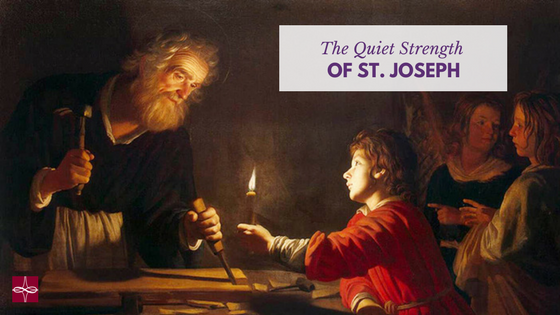

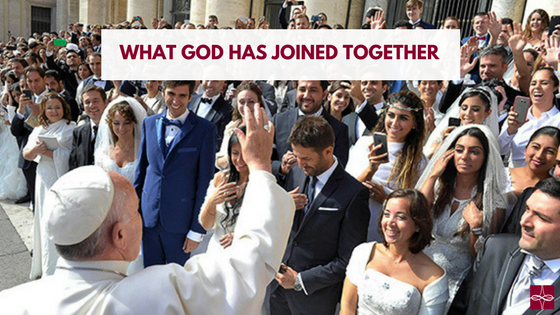

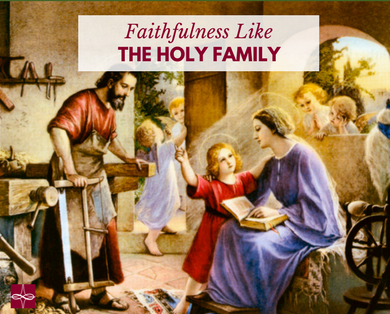
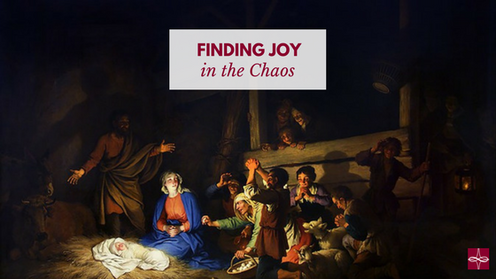

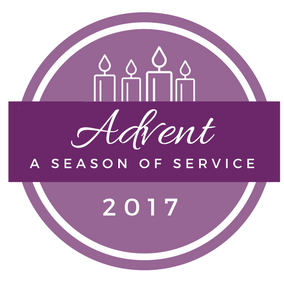
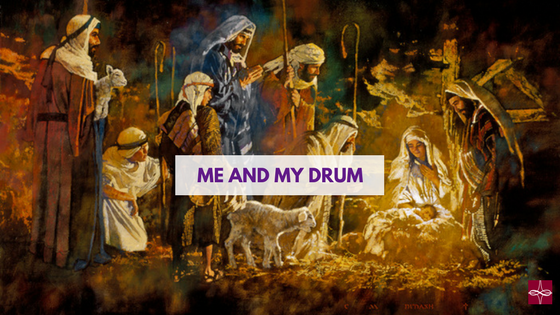



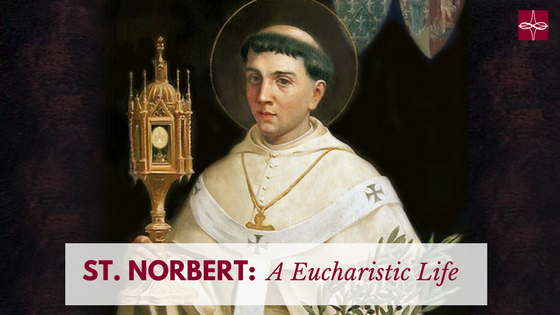

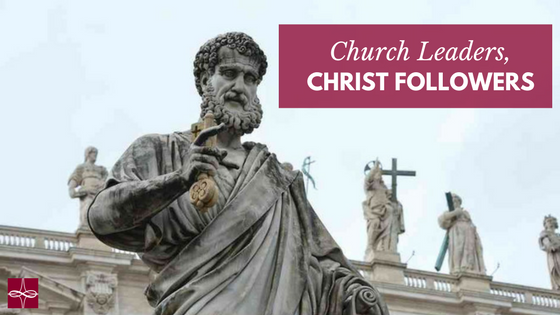
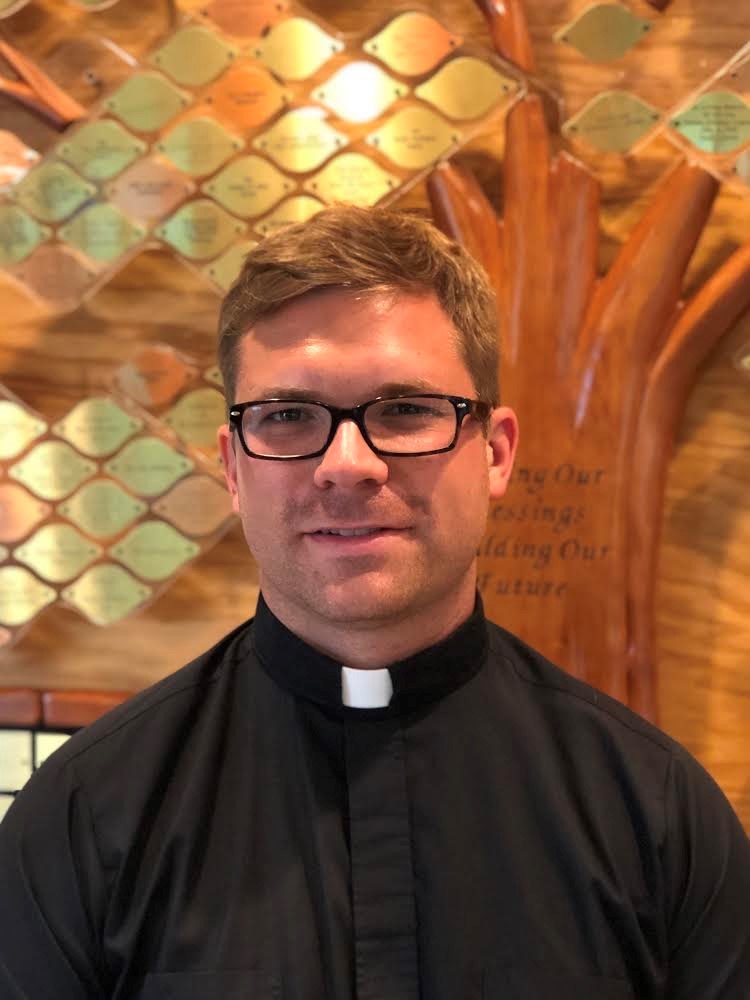
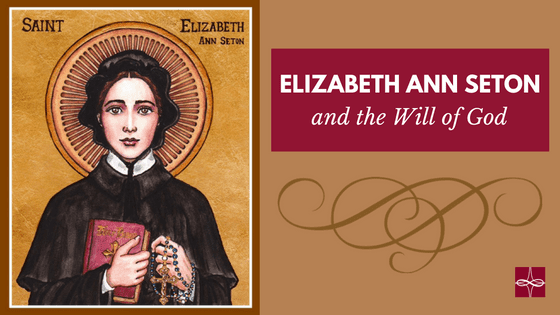

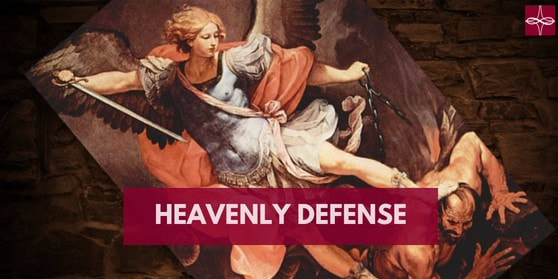

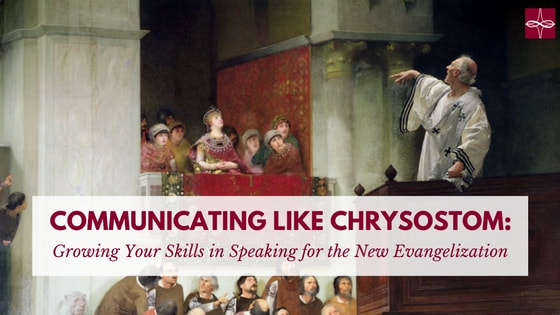



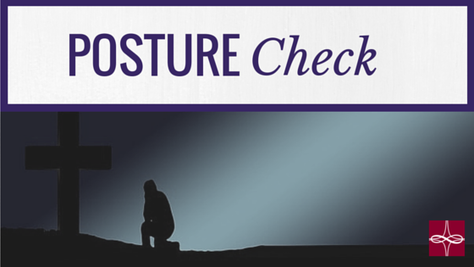



 RSS Feed
RSS Feed